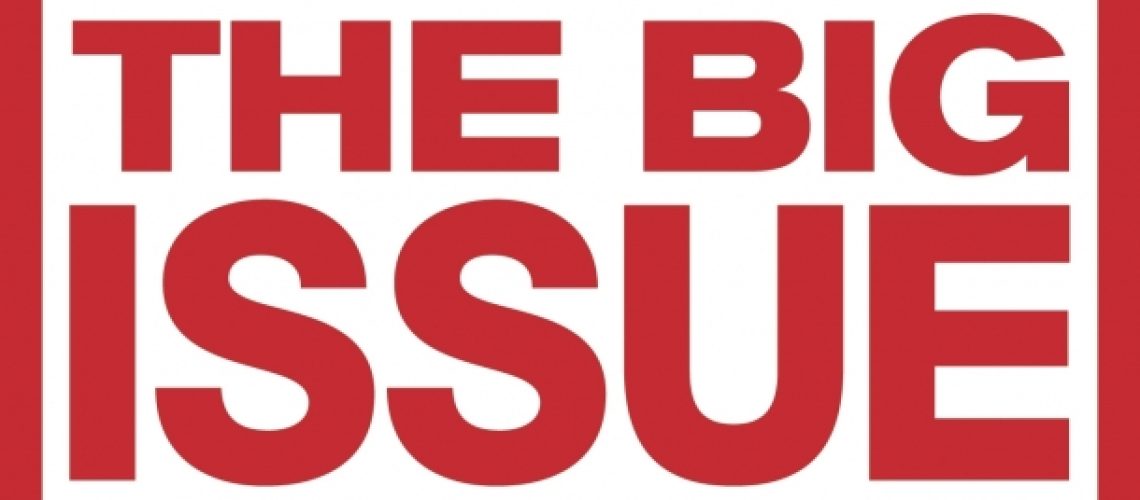How many times have you been stopped on the street by a Big Issue seller touting their magazine? And how many times have you wanted to give them money and buy it, but not had any cash or spare change on you?
In today’s cashless society, this is happening more and more and it’s having a detrimental effect on homeless people, charities and Big Issue sellers who rely on people carrying cash to make donations.
Where I live, there’s a great Big Issue seller. He’s friendly, charistmatic and makes everyone who walks by smile. The locals know him, and visitors love him.
When we read of situations like this, where people and charities rely on cash donations, they touch us but they can be faceless. There is no real connection between that feeling of regret at not having the cash on you and knowing at that moment there’s not a lot you can do about it.
But when I think of these Big Issue sellers who are losing out on money, they’re not faceless – I think of my local seller. A real man who I see weekly, who might be losing sales not because people don’t want to give, but because as a society we’re not carrying the cash.
That is where contactless payment systems come in, and it so encouraging that The Big Issue has been trialling this technology with some of it’s sellers.
Imagine strolling down the High Street, and you are approached by a Big Issue vendor – You know you haven’t got the spare change, but that’s okay, all you have to do is tap your card on their card reader! Win win.
Hopefully this technology will be a huge boost to the income of homeless vendors.
December 2018 saw the start of an 8 week trial in the cities of London, Bath, Birmingham, Bristol and Nottingham. This trial was in response to figures that showed a steep decline in cash payments, down to 40% from 62% between 2006 and last year.
By 2026 this decline is expected to dip even lower to 21%. In money terms, Barclaycard warned that charities who only accept cash donations could be missing out on a huge £80million per year.
Managing Director of The Big Issue, Russell Blackman, commented on the trial saying, “Obviously, we’re moving swiftly towards a cashless society. In the last few years, Big Issue sellers have been proactive and they’ve gone off and purchased their own payment devices, but we hope this pilot is the starting point that will provide more vendors with an income in the changing landscape.”
One of the vendors who took part in the trial said the people of Bristol often told him they weren’t carrying cash. Of course, there will be people who use this as an excuse not to buy a magazine, but others commented further saying if he had a means of people paying by card then more people would be able to buy from him.
If the trial is deemed a success, then it will be rolled out nationally but that won’t be quite as straightforward as sit sounds.
To have a card reader, the vendor must have a bank account and to get a bank account you require a fixed address. This is partly the reason why the trial has been limited to just 20 vendors, but if it is to be expanded on then The Big Issue will have to work closely with their sellers and banks to help them open accounts.
The Big Issue aren’t the only ones to embrace technology to increase cashless donations.
In Oxford during 2018, Greater Change was launched where homeless people could accept contactless donations via an app where passersby could scan a barcode worn around the person’s neck.
Similarly, the Netherlands trialled a contactless jacket by Helpless Heart where people could donate to them by simply tapping their card on the chest of the homeless person’s coat.
Street Scene in the US launched an app which enabled homeless people to accept cashless payments and they could then collect the money at the end of the day from the offices.
And in Sweden, a newspaper similar to The Big Issue, Situation Sthlm, teamed up with a card reader company seen in the UK trial.
What it comes down to is this – People still want to give. That hasn’t changed. But as a society, we pay for more and more with just a tap of a card or the entry of a pin. We don’t really need to carry cash anymore, and so we tend not to have it in our purses or wallets very often, if at all.
This contactless payment technology could revolutionise how people collect cashless donations and boost their sales back up again.
I personally can’t wait for the first time I can buy a magazine from my local Big Issue seller using a contactless card reader.


